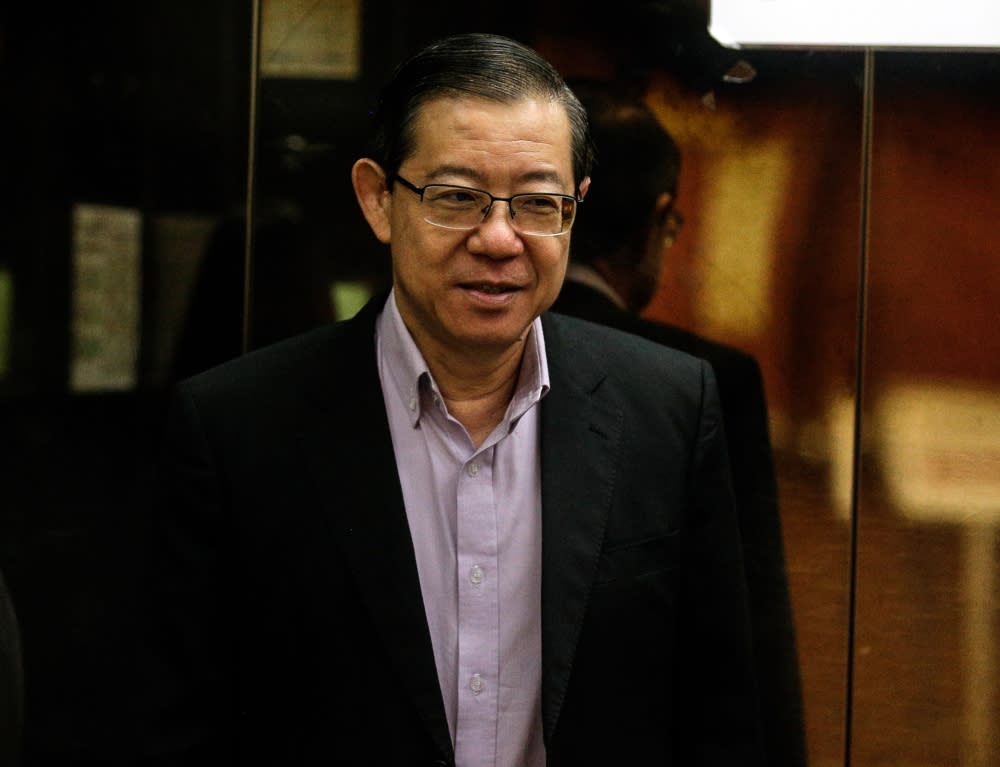Guan Eng flags Penang state finances, calls for better governance and transparency

KUALA LUMPUR, May 28 — Former Penang chief minister Lim Guan Eng today expressed his concern about the alarming drop in the state government’s main account balance which fell by RM825 million over the past four years, dropping from RM1.15 billion in 2019 to just RM330 million in 2023.
The Bagan MP said reinforcing competent, accountable, and transparent (CAT) governance with mandatory open tenders is crucial to increasing state revenue, reducing costs, and avoiding fiscal deficits.
“It is essential to strengthen CAT governance to increase state revenue and avoid falling into fiscal deficits. First, CAT mandates the implementation of open tenders. Open tenders can maximise revenue or reduce costs while eliminating perceptions of misconduct or favouritism towards certain cronies,” he said in a statement today.
Citing a controversial direct negotiation sale of 559 acres of land in Ladang Byram, Batu Kawan, by Penang Development Corporation (PDC) for RM646 million, he said the sale was initially done through direct negotiation, raising concerns about transparency and potential loss of revenue.
However, after public pressure, he explained that the Penang government cancelled the direct negotiation and opted for an open tender which resulted in a significantly higher sale price.
“Yesterday, in a written response to Bunga Kebun assemblyman Lee Boon Heng, the chief minister (Chow Kon Yeow) revealed that there were seven bidding companies for the land, expected to be sold for RM780 million.
“The tender price of RM780 million is RM134 million or 21 per cent higher than the original direct negotiation price of RM646 million for the 559-acre land,” he added.
He then went on to say that the people of Penang benefitted by over RM134 million just by conducting an open tender.
The DAP national chairman also highlighted issues regarding the Gurney Bay development project, citing a cost increase from RM175 million to RM247 million attributed to inadequate supervision and planning, with subsequent criticism arising from significant post-opening defects.
“A late penalty of RM 1.6 million was imposed for a 65-day delay. What are the remaining flaws that still exist and are currently being rectified?
“The greater concern includes the significant delay and worrying progress level for Phase 2, raising doubts about the contractor’s ability to complete the work satisfactorily. What is the current status of the work progress and payments made so far?” he said.
Lim added that when the government fully assumed control of the project originally conducted as a Public Private Partnership, it neglected to execute a proof of concept which resulted in the unreviewed cost of RM 275 million by independent government consultants.
He said the construction project had problems like damaged playgrounds, missing sprinkler systems, and cracked concrete slabs because there were not any project managers or supervisors overseeing it, despite having various experts appointed.
Highlighting the planning and management of taxes by PDC, he said the tax payments surged drastically in recent years, indicating a lack of effective tax planning and management since 2017.
However, he said with better tax planning, funds could be allocated for vital development projects like building an elevated reservoir in Batu Kawan Industrial Park to address water supply issues.
“It is understood that the tax management and planning practices previously in place were not implemented after 2017, leading to a significant tax burden on PDC starting in 2018. Just imagine how beneficial it would be for PDC if RM200 million were allocated for development projects.
“Surely, an ‘elevated reservoir’ could be constructed in Batu Kawan Industrial Park, addressing the issue of interrupted water supply in the area,” he said.
Adding more, Lim said many representatives feel dissatisfied with the steep water tariff increases due to dissatisfaction with Penang Water Supply Corporation (PBAPP) in both service delivery and communication with the public.
He said when the monthly allowance for PBA Holdings Bhd Board Members increased from RM1,000 to RM1,500, a monthly allowance of RM47,600 for a part-time board member was deemed unreasonable.
“For the first time, PBAPP faced interrupted water supply for several days, which had never happened before. Investing in the future through digitisation is emphasised by the CAT administrator as the reason why Penang urgently needs an IC Design and Digital Park. Penang leads in semiconductor chip production, supplying 7 per cent of the global market and 20 per cent to the United States,” he said.
Therefore, he said incentives offered by Selangor are much needed, such as RM60 million from the federal government for software like Electronic Design Automation (EDA) and RM65 million from the Selangor state government for management expenses, rent, and salaries.
He explained that such incentive packages will not only enable the existing 18 IC design companies in Penang to stay but also attract more similar companies from abroad.
Lim also approved of the augmented budget for Islamic religious affairs of RM3.3 million for Penang Islamic Religious Affairs Department for this year but equal increments for non-Islamic places of worship (Ribi) were also necessary.
“I would like to request that the same increase of RM3.3 million be granted to Ribi, which has been allocated very little funding.
“We must ensure equitable support for all religious communities,” he said.



